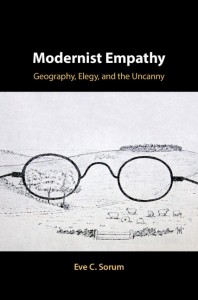
Barack Obama was the empathy president. I don’t say this simply because of some of his more famous uses of the term—for example, when he described his criteria for Supreme Court nominees in May 2009 as including “that quality of empathy, of understanding and identifying with people’s hopes and struggles as an essential ingredient for arriving at just decisions and outcomes.” From his first memoir, Dreams of My Father (1995), to speeches and discussions throughout his presidency, Obama emphasized the importance of empathy in both personal and political life.
We are at a different moment now, of course, under President Trump in the United States, as well as with other leaders around the globe; I keep returning to W.H. Auden’s line from “Sonnets from China” (1938), in which he warns that “we dash down the slope of hate with gladness.” That sums up this moment with devastating accuracy. It seems more pressing than ever to return to a concept like empathy and to reexamine it—in part to figure out why its half-life has been so short.
As I argue in my book, Modernist Empathy: Geography, Elegy, and the Uncanny, ‘modernist writers’– those who were writing at the moment when the term “empathy” was coined and circulated–present a vision of empathy as a more fraught and problematic concept than we may want to acknowledge, and we must probe modernist theories of the empathetic imagination in order to think through the political possibilities and dangers of employing empathy as a critical concept today.
What dangers and possibilities? Well, we can turn to a remark that Virginia Woolf made in a 1926 diary entry:
Have no screens, for screens are made out of our own integument; & get at the thing itself, which has nothing whatever in common with a screen. The screen making habit, though, is so universal, that it probably preserves our sanity. If we had not this device for shutting people off from our sympathies, we might, perhaps dissolve utterly. Separation would be impossible. But the screens are in the excess; not the sympathy.
Woolf is using the word “sympathy,” since empathy was just emerging as a common term, but she is using it in the way that we now define empathy—that assumption of another perspective, a movement outside the self, a breaking through our “own integument.” And what she gets at here is how we must engage in a balancing act between protecting our sense of self (which is what the screens do) and moving outside and opening up the self. Empathy might be a unifying act, but it is the product of an essential disjunction between self and other; should that disjunction disappear, there is no longer the context in which empathy can emerge. In other words, otherness in some form or another is necessary for empathy. At the same time, empathy is what allows us to imagine a perspective and a connection outside the solipsistic self.
Recognizing and fostering this self-conscious, yet outward-reaching attitude in the face of the ethical pitfalls that lurk is the work that modernist literature explores and encourages—work that challenges the fear of the “other” nurtured by our xenophobic leaders today. Auden’s line comes from a sonnet dedicated to E. M. Forster, whose “only connect” epigraph may be, for better and worse, his most memorable line. Our precipitous slide down the slopes of hate reinforces the need to try to imagine other perspectives while recognizing, as the literature reminds us, how limited our imaginations may be.
 Modernist Empathy: Geography, Elegy, and the Uncanny, is available now. Receive 20% off this book by entering SORUM19 at the checkout before 30th October 2019.
Modernist Empathy: Geography, Elegy, and the Uncanny, is available now. Receive 20% off this book by entering SORUM19 at the checkout before 30th October 2019.
Latest Comments
Have your say!